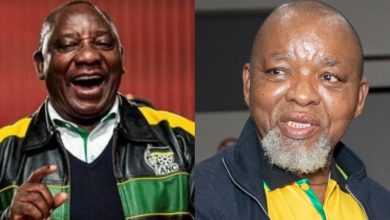The Danger of Blind Loyalty in Politics

In South Africa, and particularly within the leading party, it is common to see people defend a politician no matter what they do. We often say such individuals are “in the politician’s pocket.” This phrase describes supporters who are tied to a leader because of personal benefits—whether promises of jobs, money, or favours—rather than principles or values.
The danger of this behaviour is that it blinds communities to the truth. When a politician makes poor decisions, engages in corruption, or ignores the real needs of the people, those trapped in blind loyalty continue to cheer them on. They justify wrong actions and silence any criticism, believing they are protecting their source of benefits. In reality, they are protecting the very systems that keep communities in poverty and underdevelopment.
This reality is playing out right now in the small town of Matatiele in the Eastern Cape, where residents are divided over the issue of former mayor Sonwabile Mngenela. Social media has become the battleground, with community members—many of them ANC supporters—tearing into each other over his possible reinstatement, as confirmed in a letter from the provincial office. What makes this troubling is that these very residents understand the rules, policies, and constitution of their organisation. Yet, those who are “in his pocket” choose to ignore what they know. Instead of engaging truthfully, they push the wrong narrative simply to ensure their preferred leader remains in power. To silence critics, they weaponise the word “hate”—suggesting that any form of accountability or disagreement is motivated by personal dislike rather than principle. This tactic not only distorts the truth but also deepens divisions within the community.
Such behaviour has serious consequences. Firstly, it undermines accountability. Leaders who know they will be defended no matter what have no reason to change or act honestly. Secondly, it deepens corruption and mismanagement, as wrongdoing goes unchallenged. Thirdly, it weakens democracy. Communities lose their voice because they choose loyalty to a person over loyalty to the truth and to the nation’s progress.
Ultimately, blind loyalty drags everyone into dangerous territory. A politician who is supported even when they are wrong can take entire communities down a path of economic decline, service delivery failures, and even violence. The short-term benefits some individuals gain cannot outweigh the long-term harm that affects generations.
True leadership should be measured by service, honesty, and results—not by personal gain. Communities must learn to hold politicians accountable, praise them when they do right, and challenge them when they go wrong. Only then can South Africa move toward a healthier democracy and a better future.
No tags for this post.





